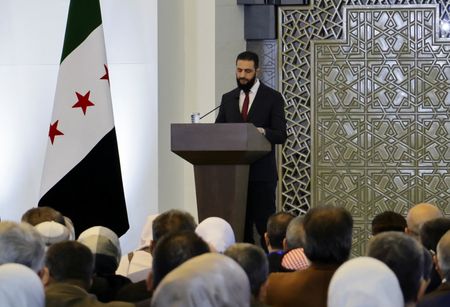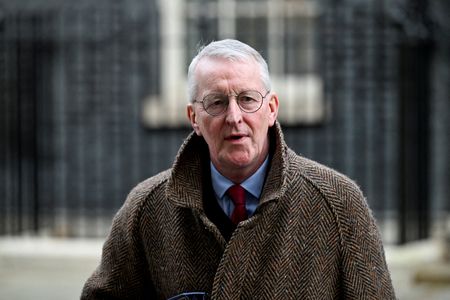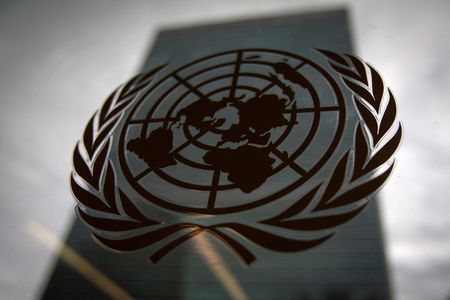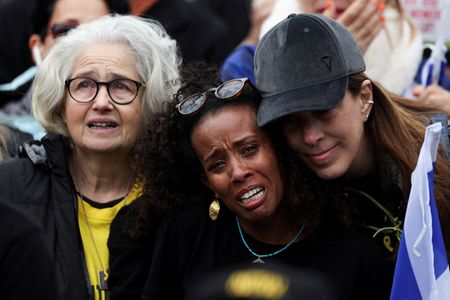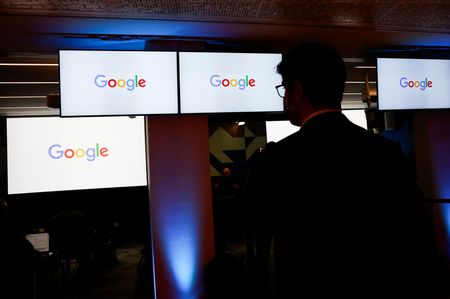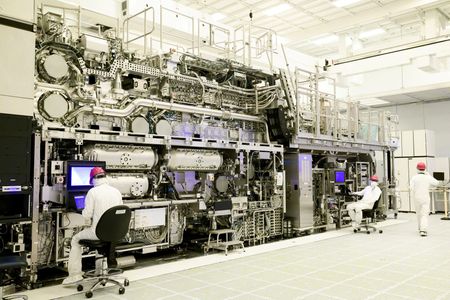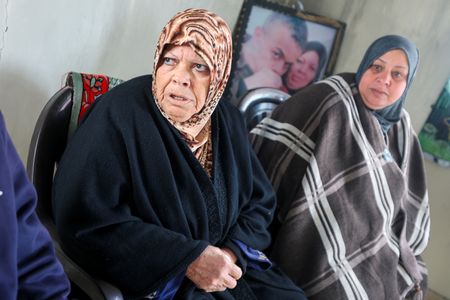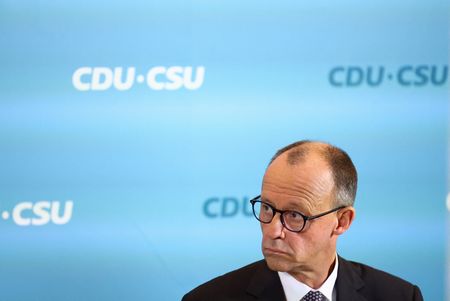By Timour Azhari
DAMASCUS (Reuters) -Syria has a “historic opportunity” to build itself anew, its interim president Ahmed al-Sharaa said on Tuesday, addressing a national dialogue summit billed by Syria’s Islamist rulers as a key milestone after decades of Assad-family rule.
Hundreds of Syrians met at the presidential palace in Damascus for the one-day event, hailed by proponents as unprecedented but which critics fear may be window dressing for a transition process steered heavily by Syria’s new leaders.
The country’s political roadmap remains broadly undefined, save for a new transitional government set to take power on March 1, whose members have yet to be announced. Sharaa, facing calls from Western and Arab countries to lead an inclusive process, has said elections would take up to five years to hold.
Tuesday’s participants arrived on a red carpet previously reserved for the few foreign dignitaries visiting former president Bashar al-Assad until he was toppled last year by a rebel offensive spearheaded by Hayat Tahrir al-Sham (HTS).
The group’s head, Ahmed al-Sharaa, was named by military rebel commanders as the country’s interim president last month and he swiftly pledged to hold a national dialogue to discuss the country’s future.
“Syria liberated itself on its own, and it suits it to build itself on its own,” he said in his opening address on Tuesday.
“What we are living today is an exceptional, historic and rare opportunity. We must take advantage of every moment of it to serve the interests of our people and our country,” he said.
Participants divided into six working groups to discuss a transitional justice system; the constitution; building state institutions; personal freedoms; Syria’s future economic model and the role civil society would have in the country.
The discussions were confidential, with a moderator allocating two minutes to participants to speak and restrictions on removing any documents from the summit hall.
Participants said the discussions were well-organised – but still had concerns over how much weight their input would have in a political process heavily steered thus far by HTS.
“Our eyes remain on two things: that this discussion needs to be an ongoing process, and that we need to know how these discussions will be used,” Hanin Ahmad, an activist from the central province of Homs, told Reuters.
Ahmad participated in the session on personal freedoms, where she said there was broad consensus on preserving the civic, political and individual liberties of Syrians.
Adnan Tarabishy, a Syrian businessman who took part in the economy session, told Reuters that organisers had promised participants that the dialogue was only a first step.
“We’re in the presidential palace and the guys who were here for 54 years are outside. It’s an unbelievable feeling. We feel we’re trying to rebuild Syria from scratch,” Tarabishy said.
CONCERNS OVER INCLUSION
Organisers say the recommendations set to be agreed by the end of the day will help shape a constitutional declaration intended to lay out the basic principles for Syria’s new governing order. They will be considered by the new transitional government.
Proponents say the process is a notable shift from decades of autocratic rule by the Assad family, when political dissent was often met with detention in a labyrinthine prison system.
The summit will be closely watched by Arab and Western capitals alike, which have conditioned full ties with Syria’s new leaders – including the possible lifting of sanctions – on whether the political process is inclusive of Syria’s ethnically and religiously diverse population, three diplomats said.
Syria-based diplomats were not invited to the conference, three foreign envoys in the country said. Its organisers did not take up offers by the United Nations to help with the summit.
The U.N., the United States and other countries have imposed sanctions on HTS as a group. The U.S. and the European Union also have widespread sanctions in place on Syria, but have issued temporary lifts on some sectors in recent weeks.
Speaking after Sharaa, Syria’s Foreign Minister Asaad al-Shibani criticised international sanctions still in place, saying they were being used “as a means of pressure on the will of the Syrian people.”
Following his comments, a woman in attendance stood up and shouted, “Thank God, the People’s Palace has returned to the people!”
To put together the event, a seven-member preparatory committee hosted listening sessions organised by province, sometimes holding several two-hour sessions a day to fit in all of Syria’s 14 regions over the course of a week.
Five of the committee members are either in HTS, or close to the group, and there are no Druze or Alawite members, both of which are significant minorities in Syria.
No members of the Kurdish-led autonomous administration in northeast Syria or the U.S.-backed Syrian Democratic Forces were invited, officials from both groups told Reuters.
(Reporting by Timour Azhari; Writing by Maya Gebeily; Editing by Sharon Singleton, William Maclean)

